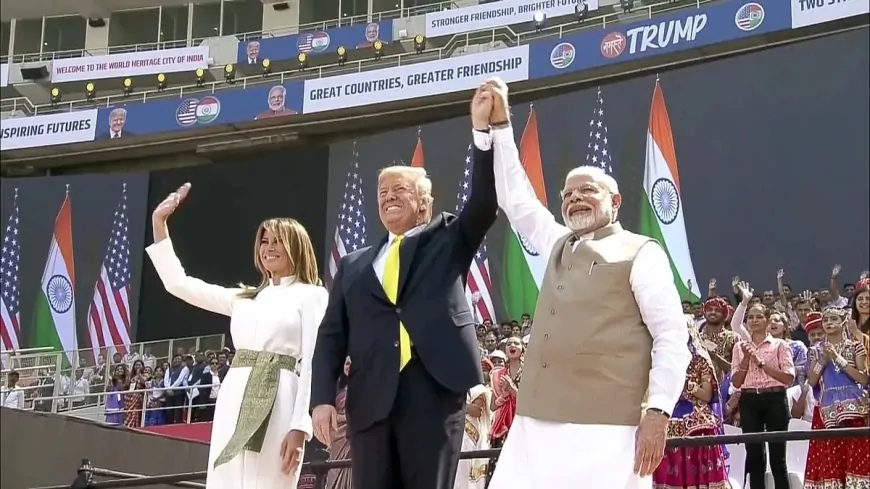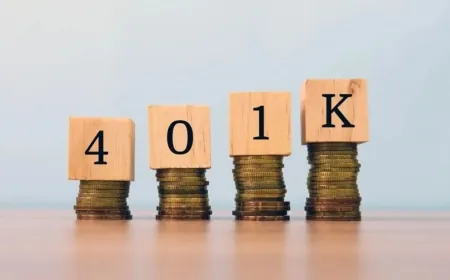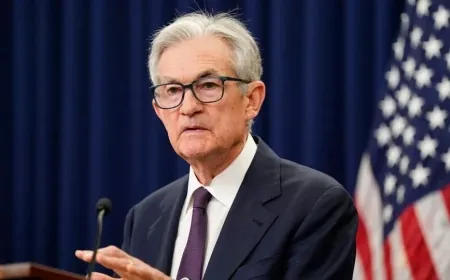PM Modi and Trump Trade Talks: Can Energy Deals Reduce Tariff Tensions?
As PM Modi meets Trump, U.S.-India trade tensions rise. Can energy imports help India counter Trump’s reciprocal tariffs? Key insights from high-stakes talks.

As Indian Prime Minister Narendra Modi visits the White House, trade tensions between the U.S. and India are expected to take center stage. While tariffs remain a contentious issue, India’s strong energy trade ties with the U.S. could play a critical role in shaping negotiations and mitigating the impact of new reciprocal tariffs proposed by President Donald Trump.
The Role of U.S. Energy Exports in Trade Talks
India is a major importer of American oil and natural gas, a factor that could serve as leverage in discussions over trade duties. With Trump’s transactional approach to economic policy, Modi’s government may use increased energy imports as a bargaining chip to counteract potential tariff hikes.
"Trump has made it very clear that he views a lot of these things transactionally," said Shayak Sengupta of Columbia University’s Center on Global Energy Policy. India’s leadership appears to be engaging with the Trump administration more confidently compared to other global powers, such as the European Union, partly due to the established relationship between the two leaders.
To ease tensions, Modi has already proposed reducing tariffs on select U.S. goods, such as Harley-Davidson motorcycles. However, whether such concessions will be enough to balance the trade deficit remains to be seen.
Trump’s Push for Reciprocal Tariffs
Trump has long advocated for “reciprocal tariffs,” where the U.S. would impose import duties equal to those levied by other nations. His recent social media post emphasized this position, stating, "TODAY IS THE BIG ONE: RECIPROCAL TARIFFS!!!"
Despite the strong rhetoric, implementing such a policy with India may not be straightforward. The U.S. trade deficit with India has grown past $45 billion, and India maintains some of the highest tariffs globally. These issues have been a persistent concern for Trump’s administration.
“The world has taken advantage of the United States for many years,” Trump said. “We're going to be doing reciprocal tariffs, which is whatever they charge, we charge very simply.”
However, trade specialists argue that this approach may overlook the broader economic interdependence between the two nations. India’s energy purchases from the U.S. provide a substantial financial link, and expanding these imports could serve as a strategic move to counteract potential tariff impositions.
Energy as a Bargaining Tool
India currently imports large volumes of energy from Russia at a lower cost, but increasing American energy imports could help offset trade tensions. Trump has been eager to boost U.S. energy exports, and past negotiations show that energy deals have influenced his trade decisions.
For instance, Trump previously granted Canada exemptions from higher energy tariffs and welcomed Japan’s commitment to importing more American liquefied natural gas. These examples suggest that Modi’s government could use similar strategies to secure a favorable trade agreement.
By agreeing to purchase more U.S. oil and gas, India could strengthen its economic ties with Washington while potentially avoiding stricter tariffs on its exports.
Addressing Non-Tariff Barriers
Beyond tariffs, India is also likely to raise concerns over non-tariff barriers imposed by the U.S., including regulatory constraints and subsidy-driven competition that impact trade flows.
Scott Lincicome of the Cato Institute commented, “It is hard to employ all of the non-tariff protectionism that the United States employs in terms of money, resources, administrative capabilities, and the rest.”
India has consistently argued that focusing solely on tariff rates presents an incomplete picture of trade imbalances. However, Trump’s approach has primarily centered on tariffs, rather than addressing deeper structural issues in trade relations.
The Possible Outcomes of the Modi-Trump Talks
While the possibility of a new trade agreement remains open, experts caution that any deal reached during this visit may not significantly alter the trade relationship between the two nations.
Professor Sengupta notes that past trade deals, including those involving Trump, have often been announced with much fanfare but delivered minimal impact on trade deficits.
“I suspect you're not going to see as much of a movement in terms of the deficit, the trade surplus, or whatever metric that you want to look at,” he said.
As negotiations unfold, India’s strategic use of energy imports, combined with its stance on non-tariff barriers, will likely play a key role in determining the outcome of these high-level trade discussions.
Also Read: Modi US Visit 2025 Focuses on Trade Defense and Energy Talks with Trump






























































